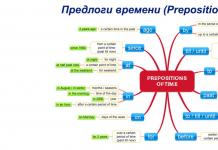At the very beginning, it is important to note that the use of non-residential premises as office and industrial locations automatically translates the issue of temperature standards into the plane of labor legislation.
The topic of labor safety is set out in Articles -211 of the Labor Code of the Russian Federation.
Article 211 of the Labor Code of the Russian Federation. State regulatory requirements for labor protection
The state regulatory requirements for labor protection contained in federal laws and other regulatory legal acts of the Russian Federation and laws and other regulatory legal acts of the constituent entities of the Russian Federation establish rules, procedures, criteria and standards aimed at preserving the life and health of workers in the course of labor activity.
State regulatory requirements for labor protection are mandatory for legal entities and individuals when they carry out any type of activity, including the design, construction (reconstruction) and operation of facilities, the design of machines, mechanisms and other equipment, the development of technological processes, the organization of production and labor.
The procedure for the development, approval and amendment of by-laws, containing state regulatory requirements for labor protection, including labor safety standards, is established by the Government of the Russian Federation, taking into account the opinion of the Russian tripartite commission for the regulation of social and labor relations.
The State Committee for Sanitary and Epidemiological Supervision of the Russian Federation approved one of the main documents in regulating temperature standards in non-residential premises - Sanitary rules and norms SanPiN 2.2.4.548-96 "Hygienic requirements for the microclimate of industrial premises".
Important! In addition to these legislative acts, the key parameters for the efficiency of the heat supply system in residential and non-residential buildings are set out in.
What should be the values?
It is known that for residential and non-residential locations the basic allowable temperature threshold will be different. The most relevant "temperature" issue is in the heat supply of non-residential premises that have the category of production.
The involvement of hired workers and their long stay here during the working day determines the development of basic hygienic requirements for physical and technical conditions, and, in particular, for temperature conditions.
According to the Sanitary Rules SanPiN 2.2.4.548-96, the normative temperature indicator is influenced by factors such as the intensity of the employee's energy consumption, time spent, seasonality, as well as the peculiarities of the work schedule. Based on these parameters, temperature standards for non-residential premises are being developed.:
- 18–20°С - in the corridor (maximum allowable temperature - 16°С);
- 16–18°С - in the pantry (temperature in the range from 12°С to 22°С is allowed).
For non-residential premises of an industrial nature, the Sanitary Standards provide for basic temperature indicators at a minimum mark of 17 ° C. At the same time, the value of 26 ° C will already be considered extremely high for a production facility.
Fixing standard temperature indicators in industrial non-residential premises should be displayed in the measurement protocol. It also includes a conclusion about whether the values recorded during the measurement correspond to the optimal indicators.
What to do in case of deviation from the norm?
Based on the Rules for the provision of utility services to owners of premises, which were put into effect by Decree of the Government of the Russian Federation No. 354 of May 6, 2011, a deviation from the optimal temperature indicator to a lower side entitles the owner of the premises to claim a reduced payment by 0.15% for each hour of bad heating.
Important! If the air temperature in a non-residential premises does not meet the optimal standards due to the poor quality of heating, its owner has the right to file a claim with the service organization and report violations.
For example, the average monthly payment for heating is 2000 rubles. If we recalculate this amount by the retention rate (0.15% / hour), and the number of hours: 200 * 2 * 0.0015 * 2000 = 1200 rubles. This amount in the above example can be deducted from the general "heating" payment.
According to the Rules for the provision of housing and communal services, a difference of 2 degrees gives legal grounds to the owner of the premises in order not to pay bills accrued according to temperature standards that do not correspond to reality. To exercise this right, violation of temperature standards should be recorded in the inspection report of a special commission.
Important! In non-residential premises, the owner has the right to independently choose a provider of housing and communal services, and conclude agreements with these organizations.
This somewhat simplifies the possibility of defending their consumer interests, since communication is carried out directly with resource supply companies.
Conclusion
As a result, we add: it is extremely difficult to influence the work of heat supplies and maintaining clear standard temperature indicators in residential and non-residential premises. Serious requirements for measuring, fixing and verifying indicators often force you to stop working on defending your rights halfway through.
At the same time, we emphasize that it is important and necessary to register all violations in the provision of housing and communal services, and heat supply, in particular. In case of difficulties, you should contact a lawyer: qualified specialists will help prepare all the necessary documentation for appeals to state authorities, and defend the legal rights of the owner.
ARBITRATION COURT OF THE REPUBLIC OF KHAKASIA
In the name of the Russian Federation
SOLUTION
Arbitration Court of the Republic of Khakassia composed of Judge E.The. Kaspirovich, while keeping the minutes of the court session by the secretary of the court session K.P. Kirbizhekova, considered in an open court session the case on the application
Limited Liability Company Khakassky TeploEnergoComplex (TIN 1903013620, OGRN 1021900698940)
to the State Housing Inspectorate of the Republic of Khakassia (OGRN 1041901000338, TIN 1901061466)
on the recognition as illegal and the annulment of the decision of January 20, 2015 in the case of an administrative offense,
when participating in the case as a third party, not declaring independent claims regarding the subject of the dispute, the limited liability company ZhEU-1 (TIN 1903018184, OGRN 1081903000520).
Representatives of the following took part in the hearing:
applicant – Kruglov G.K. by power of attorney dated January 12, 2015 No. 03-2015 (vol. 1 case file 9), Rogozhin S.A. by power of attorney dated January 13, 2015 No. 17-2015 (vol. 2 case sheet 7);
defendant – Samrin AND.P. by proxy dated February 2, 2015 (vol. 1 case sheet 62), Olshevsky V.S. by proxy dated March 23, 2015 (vol. 2 case sheet 5), Komarov D.V. by proxy dated March 27, 2015 (v. 2 case file 6).
Limited Liability Company "Khakassky TeploEnergoComplex" (hereinafter referred to as the Company) applied to the Arbitration Court with an application for recognition as illegal and cancellation of the decision of the State Housing Inspectorate of the Republic of Khakassia (hereinafter referred to as the Housing Inspectorate) dated January 20, 2015 in the case of an administrative offense.
By the contested decision, the applicant was held liable on the basis of the article of the Code of Administrative Offenses of the Russian Federation (hereinafter referred to as the Code of Administrative Offenses of the Russian Federation) in the form of an administrative fine in the amount of 5,000 rubles. for violation of the regulatory level or regime for providing the population with public services.
By the ruling of the Arbitration Court dated January 30, 2015, the company's application was accepted for consideration in summary proceedings.
By a ruling dated March 26, 2015, the arbitration court decided to consider the case in accordance with the rules of administrative proceedings.
By a ruling dated April 23, 2015, the arbitration court granted the petition of the company, attracted to participate in the case as a third party, not declaring independent claims regarding the subject of the dispute, the organization currently managing and servicing the house during the disputed period - the limited liability company ZhEU-1 (hereinafter referred to as ZhEU-1 LLC).
The third party - ZhEU-1 LLC did not appear at the hearing, the place and time of the trial was duly notified (notice dated June 11, 2015, v. 2). In accordance with Part 5 of Article of the Arbitration Procedure Code of the Russian Federation (hereinafter referred to as the APC of the Russian Federation), the case was considered in the absence of a third party.
At the hearing, the representatives of the society supported the claims, referred to the arguments set out in the application, in the explanatory notes to the recall (vol. 1 pp. 167-169) and to the evidence presented in the case file. The applicant's arguments are as follows:
In the inspection certificate dated December 5, 2014 No. 453/24, the following are not indicated: the place of drawing up the act, methods for measuring temperature in residential premises using an L-300 thermometer, verification certificate No. 4080/203, methods for measuring the parameters of heat and water supply at the inlet to house using infrared thermal imager TESTO 875-2, verification certificate No. 016008950;
The materials of the administrative case do not contain information about the certificate of verification of the TM5 pressure gauge;
According to Appendix No. 1 to Decree of the Government of the Russian Federation No. 354 dated May 6, 2011 (hereinafter referred to as Rules No. 354), the pressure in the water supply system should be measured at the water intake point during the hours of the morning maximum (from 07.00 to 09.00) or evening maximum (from 19.00 to 22.00 ); such measurements were carried out with a TM5 manometer at 15:20;
According to Appendix No. 1 to Rules No. 354, when measuring temperature, devices are allowed that must comply with the requirements of the standards, in particular Table No. 8 of GOST 30494-2011, the permissible error of the device should be no more than 0.1 degrees; the temperature of the coolant at the entrance to the house was measured using a TESTO 875-2 thermal imager, the error of which is about 2 degrees;
The administrative body did not prove the presence in the actions (inaction) of the applicant of the elements of a controversial administrative offense;
The reference in the contested resolution to paragraph 6.2.59 of the Rules for the technical operation of thermal power plants, approved by order of the Ministry of Energy of Russia on March 24, 2003 No. 115, is untenable, since these rules do not contain requirements for the quality of public heating services. Such requirements are contained in Appendix No. 1 to Rules No. 354, among which there is no such requirement as the temperature of the water in the supply pipeline at the entrance to the house;
By virtue of clause 15 of section 6 (footnote 5) of Appendix No. 1 to Rules No. 354, the requirements for the temperature regime in apartments are applied subject to the implementation of measures for warming the premises (GOST R 51617-2000);
The Company is not engaged in the maintenance and operation of intra-house engineering communications of apartment buildings, the maintenance of intra-house communications is carried out by the management company - ZhEU-1 LLC.
Representatives of the housing inspectorate did not agree with the demands of the company, referred to the arguments set forth in the response to the application (vol. 1 pp. 55-61), and to the evidence presented in the case file, indicated:
The audit report indicates the location of the audit: Chernogorsk, st. Sovetskaya, d. 77; it contains the phrase “Measuring the air temperature in residential premises was carried out instrumentally in accordance with GOST 30494-2011 using the device ..”, followed by information about the device used - an electronic laboratory thermometer LT-300, verification certificate No. 4080/203 is valid until August 2, 2015, head. No. 1468403;
The infrared thermal imager TESTO 875-2 only measured the temperature of the carrier at the point of delimitation of the balance sheet; these measurements were made in accordance with the instruction manual; a note on the method of measuring the temperature of the coolant was not included in the inspection report due to the lack of free space for the mark in the report, but the device itself and its serial number are indicated in the report;
The inspection report contains a mark on the model of the pressure gauge - TM5 and information on its state verification;
As part of the controversial audit, the air temperature in the residential premises was measured, as well as the heating parameters at the border of the balance sheet of the multi-apartment residential building, but not the water supply parameters;
GOST 30494-2011 establishes requirements for measuring the air temperature in a residential area, but not for measuring the temperature of the coolant;
The maximum deviation of the air temperature measuring device - the laboratory electronic thermometer LT-300 complies with the requirements established by Table 8 of GOST 30494-2011;
The error of the device for measuring the temperature of the coolant at the boundary of the balance sheet is not regulated by Rules No. 354;
The society is obliged to ensure the high-quality provision of the utility service - heating and all the parameters characterizing it up to the point of balance differentiation, namely, to the common building metering unit for the thermal energy of the coolant, in the place of which the measurements were carried out;
The TESTO 875-2 device, referred to in the decision of the Montenegrin City Court dated June 20, 2014, was used for its intended purpose, namely for non-contact measurement of the spatial distribution of the temperature of the surfaces of solid (bulk) bodies, gas jets and water by their own thermal radiation and displaying this distribution on an LCD screen;
The readiness certificate, as well as the absence of comments on the thermal circuit (insulation) in it, confirm the implementation of measures to insulate the premises before the heating season of 2014-2015;
Insufficient pressure drop is the result of a deterioration in the quality of heat supply to the disputed residential building, which in turn causes a decrease in air temperature in residential premises;
Third party Ltd. «ZHEU-1» (currently managing and servicing the house in the controversial period of the organization) response to the application is not submitted, at the hearing on June 11, 2015 the representative of the third party Arzamastseva AND.GN. supported the position of the housing inspectorate. She believed that the violation of the temperature regime in the apartments was due to the fault of the resource supply organization.
When considering the case, the Arbitration Court found the following.
On October 22, 2014, the prosecutor's office of Chernogorsk received an appeal from residents of apartments Nos. 14, 17, 22, 10, 12, 19, 29, 26, 23, 25, 18 . Sovetskaya, d. 77 (hereinafter - MKD), on taking measures in connection with the violation of the temperature regime - lack of heating (v. 1 case sheet 85). On October 31, 2014, this appeal was sent by the prosecutor of the city of Chernogorsk for consideration to the housing inspectorate (v. 1 pp. 84, 85).
Deputy Head of the Housing Inspectorate Gusachenko A.A. Decree No. 1006-T dated December 1, 2014 was issued to conduct an unscheduled (on-site) inspection of compliance with the mandatory requirements of housing legislation and other regulatory legal acts, the quality of the provision of housing and communal services to consumers living in MKD in relation to the company (handed over to the company on December 1, 2014 , an incoming stamp on the document, vol. 1 sheet 88).
By a notice dated December 1, 2014, the company was notified of the need to appear on December 5, 2014 to jointly carry out state control of compliance with the requirements of housing legislation with a housing inspectorate specialist in order to fix the parameters of the quality of utilities for heating and hot water supply, draw up and receive an inspection report (handed to the company on December 1, 2014, incoming stamp on the document, vol. 1 case sheet 89).
Based on the results of the audit conducted in the absence of a representative of the company, an audit report dated December 5, 2014 No. 453/24 was drawn up, which reflects the following:
The temperature was recorded in living rooms, including in the corner rooms, in apartments Nos. 14, 19, 10, 27 (from +17.1?С to +21.5?С), which did not correspond to the standard temperature (+20?С and +22 ?С);
According to the temperature schedule for the supply of heat from the boiler house of the company for 2014, the "Central" water temperature in the heating system should be +59.7? C, in fact +68.1? C on the supply pipeline and +37.5? C on the return pipeline;
The pressure in the heating network on the supply and return pipelines at the entrance to the house is P1 6.1 KGS / cm?, P2 6.0 KGS / cm?;
The pressure drop at the inlet to the house was 0.1 KGS / cm², which is not enough for the normal circulation of the coolant in the heating system, as evidenced by the large overheating of the temperature of the coolant in the supply pipeline at the inlet to the house.
A copy of the verification report was received by the company on December 8, 2014 (incoming stamp on the document, v. 1 case sheet 90).
By a notice dated December 8, 2014, the company was invited to appear on December 10, 2014 at the housing inspection to draw up a protocol on an administrative offense (received by the company on December 8, 2014, incoming stamp on the document, v. 1 case sheet 91).
On December 10, 2014, an official of the housing inspectorate, in the absence of a person held administratively liable, drew up a protocol on administrative offense No. 12/24, which reflects that the company violated clauses 5.2.1, 5.2. Decree of the Gosstroy of Russia of September 27, 2003 No. 170 (hereinafter referred to as Rules No. 170), clauses 31, 149 of Appendix No. 1 to Rules No. 354, clause 9.2.1 of the Rules for the Technical Operation of Thermal Power Plants approved by order of the Ministry of Energy of the Russian Federation of March 24, 2003 Year No. 115. It is indicated that liability for these violations is provided for by the article of the Russian Federation. A copy of the protocol was received by the company on December 11, 2014 (incoming stamp on the document, vol. 1 pp. 92-94).
By the ruling of December 25, 2014, consideration of the case of an administrative offense against the company was scheduled for December 30, 2014 (received by the representative of the company Salatov K.G. on December 25, 2014 by proxy dated January 9, 2014 No. 04-2014, signature on the document, t 1 sheet 96, 97).
In the clarifications on the administrative case dated December 29, 2014, the company requested that the proceedings on the administrative case be terminated (v. 1, pp. 98-99).
At the request of the company (vol. 1 case file 143), by the ruling of December 30, 2014, the consideration of the administrative offense case was postponed until January 20, 2015 (vol. 1 case file 145).
Housing Inspectorate based on the results of consideration of the case materials of an administrative offense in the presence of a representative of the company Kruglov T.K. (power of attorney dated January 9, 2014 No. 03-2014, v. 1 case file 144) a resolution was adopted dated January 20, 2015, by which the company was brought to administrative responsibility under the article of the Russian Federation in the form of a fine in the amount of 5,000 rubles. (vol. 1 ld 10-15).
Disagreeing with the resolution adopted by the Housing Inspectorate, the company challenged it in the arbitration court within the time period established by law.
The case was considered in accordance with the rules of paragraph 2 of Chapter 25 of the Arbitration Procedure Code of the Russian Federation.
After evaluating the arguments of the persons participating in the case, examining the evidence presented in the case, the arbitration court came to the following conclusions.
By virtue of Part 3 of Article of the Russian Federation, legal proceedings in the Russian Federation are carried out on the basis of competition and equality of the parties.
The Arbitration Court is not a body carrying out administrative prosecution. Based on the principle of the presumption of innocence in conjunction with the principle of competitiveness and equality of the parties, the court has the right to establish the guilt of a person only if it has been proven by the body carrying out administrative prosecution.
Within the meaning of the above norms, the obligation to prove the guilt of a person in respect of whom a decision was made to bring to administrative responsibility is assigned to the body (official) that issued the relevant decision in the case of an administrative offense.
By virtue of paragraphs 1, 3 of Article of the Russian Federation in the case of an administrative offense, the existence of an event of an administrative offense, the guilt of a person in committing an administrative offense are subject to clarification.
In accordance with paragraph 4 of Article Section III. Proceedings in the Arbitration Court of First Instance in Cases Arising from Administrative and Other Public Legal Relations contesting decisions of administrative bodies" target="_blank">210 of the Arbitration Procedure Code of the Russian Federation in cases of contesting decisions of administrative bodies on bringing to administrative responsibility, the obligation to prove the circumstances that served as the basis for bringing to administrative responsibility rests with the administrative body that made the contested decision.
When bringing the company to administrative responsibility, the administrative body did not reflect the presence in the actions (inaction) of the applicant of the subjective side of the alleged offense. In particular, he did not indicate whether the applicant had the opportunity to comply with the relevant rules, what specific measures should have been taken by the company to comply with the requirements of the current legislation.
After evaluating all the evidence presented in the case file in their totality and interconnection according to the rules of articles , and , the arbitration court came to the conclusion that the objective side of the offense, the responsibility for which is provided for in the article of the Russian Federation, as well as the guilt of the company in committing the alleged offense, the administrative body not proven.
In accordance with clause 2 of part 1 of Article RF, the absence of an administrative offense is a circumstance excluding proceedings in a case of an administrative offense.
The arbitration court also takes into account the established judicial practice in similar cases, circumstances and arguments involving the same parties:
Decision of the Arbitration Court of the Republic of Khakassia dated June 23, 2015 in case No. А74-2740/2015 (has not entered into force (vol. 2));
The decision of the justice of the peace of the judicial district No. 5 of the city of Chernogorsk of the Republic of Khakassia dated May 5, 2015 in the case of an administrative offense No. inspection), in relation to the company was terminated due to the absence of an administrative offense in its actions (came into force);
A similar decision of the Montenegrin City Court dated June 20, 2014 (entered into force (v. 1 pp. 35-36)).
Taking into account the above, the court considers that the materials of the case do not confirm the presence in the actions of the company of an offense covered by Article RF, in connection with which, the requirements of the company are subject to satisfaction.
Guided by articles -, Section III. Proceedings in the Arbitration Court of First Instance in Cases Arising from Administrative and Other Public Legal Relations on challenging the decision of an administrative body to bring to administrative responsibility" target="_blank"> 211 Arbitration Procedure Code of the Russian Federation, arbitration court
I DECIDED:
Satisfy the application of the limited liability company Khakassky TeploEnergoComplex.
Recognize as illegal and cancel the decision of the State Housing Inspectorate of the Republic of Khakassia dated January 20, 2015 in the case of an administrative offense.
The decision may be appealed to the Third Arbitration Court of Appeal within ten days from the date of its adoption.
The appeal is filed through the Arbitration Court of the Republic of Khakassia.
Judge E.The. Kaspirovich
Court:
AS of the Republic of KhakassiaPlaintiffs:
LLC "Khakassky TeploEnergoComplex"Respondents:
State Housing Inspectorate of the Republic of KhakassiaOther persons:
SUE RH "Institute" Abakangrazhdanproekt "JSC "Institute "Abakangrazhdanproekt"
Litigation on:
For utility billsJudicial practice on the application of the norms of Art. 153, 154, 155, 156, 156.1, 157, 157.1, 158 RF LC
Decree of the Government of the Russian Federation of 05/06/2011 N 354 (as amended on 09/09/2017) "On the provision of utilities to owners and users of premises in apartment buildings and residential buildings" (together with the "Rules for the provision of utility services to owners and users of premises in apartment buildings and residential houses")
15. Ensuring standard air temperature<7>:
in residential premises - not lower than +18 °C (in corner rooms - +20 °C), in areas with the temperature of the coldest five-day period (security 0.92) -31 °C and lower - in residential premises - not lower than +20 °C C (in corner rooms - +22 °C);
in other premises in accordance with the requirements of the legislation of the Russian Federation on technical regulation (GOST R 51617-2000)
The document became invalid due to the publication of “GOST R 51617-2014. National standard of the Russian Federation. Services of housing and communal services and management of apartment buildings. Utilities. General requirements ”(approved by Order of Rosstandart dated June 11, 2014 N 544-st).
"GOST R 51617-2000. State standard of the Russian Federation. Housing and communal services. General technical conditions.»
(approved by the Decree of the State Standard of Russia dated 19.06.2000 N 158-st)
(as amended on 07/22/2003)
According to the "Rules for the provision of public services to citizens", approved by Decree of the Government of the Russian Federation No. 307 of May 23, 2006, the temperature in the living room should be at least +18 degrees, and in the corner rooms - at least +20. In cold regions, where the temperature of the coldest five-day period of the year is -31 ° C and below, the temperature of residential premises should not be less than +20 degrees. But at the same time, the room must be well insulated, and the temperature is measured in the center of the largest room of the apartment at a height of 1 m. The deviation cannot exceed 3 degrees at night, while the permissible excess is no more than 4 degrees. During the daytime, the temperature deviation is unacceptable. Accordingly, you need to correctly measure the temperature. To do this, you need to take a thermometer and keep it one meter from the outer wall and one and a half meters from the floor. The measurement is made for 10 minutes. It is most effective to make a temperature graph by the hour. If you have recorded a violation of the temperature regime, you have every reason to contact the housing organization with a complaint.
First you need to notify the emergency dispatch service. It must be specified by the governing body. The appeal can be either oral, including by telephone, or in writing.
The tenant must indicate his first name, last name, patronymic, address of residence and describe the problem - the temperature of the room does not meet the standards. In turn, the employee of the service is also obliged to report his last name, first name, patronymic, registration number of the application and the time of its receipt. If the emergency dispatcher knows the reason that your home is cold, he must notify you. Thus, the managing organization recognizes the fact of non-provision of the service or its inadequate quality. This should be recorded in the log book. This mark serves as the basis for recalculating the payment for heating.
If he is not aware of the problem, then he must agree on the exact time of establishing the fact that the service was not provided. This must happen within three business days. Then an inspection should be carried out with the participation of a representative of the public utility and the applicant. As a result, an act is drawn up, which they must sign. This act also serves as a document by which you have the right to request a recalculation. But managing organizations often do not admit their guilt and do not agree with the claims of the applicant. In this case, a secondary check must be carried out. Representatives of the State Housing Inspectorate and public associations of consumers are already invited to it. And as a result of it, an act is also drawn up signed by the consumer, contractor, inspector and public representative. With this act in hand, the consumer already has every right to demand recalculation. The act must indicate the violation of the quality parameters, the time and date of the start of the non-provision of utilities.
Thus, in your case it is difficult to demand that the management company raise the temperature, since according to YOUR information it already complies with the standard. there is a concept - the apartment air temperature standard, however, the current legislation does not provide for the concept - comfortable temperature, since it is completely different for everyone. If you intend to go to court, then you will have to prove not the fact that you are uncomfortable living with the temperature established by the standard, but the fact of violation of the law and the provision of services of inadequate quality. I advise you to measure the air temperature in the apartment and make sure that it really meets the standard. Otherwise, I see no chance of success in court.
I think that it will not be a secret for anyone that the 354th Decree of the Government is still a “folio”. This document is truly unique, since each reader has his own vision of its application in practice and he sincerely believes that his position is the only correct one. The case of calculating the size of the adjustment of the payment for heating during the “overheating” in the apartment was no exception, when the owners complain that the room is not hot according to the rules and the Criminal Code (HOA) owes them money for this. This is the situation we will analyze in the article.
background:
In one city (the name is not so critical) there is a state housing inspection so beloved by everyone, in which employees are overly confident in their rightness ( there are definitely good ones among them, but we don’t know them).
At the beginning of my career, I myself worked for the state and I can say with confidence that a few months of work for the good of the motherland are enough and your previously unclouded brain refuses to perceive reality in all its splendor and diversity. Being a servant of the sovereign, you stop thinking critically, as you get power over all these "ghouls" who always want something from you.
Being the smallest clerk, you become the "master" of souls ... If you don't believe me, turn on the TV)))
Well, that's not the point - it was hot in one of the apartments located in the MKD. The owner of the apartment (so as not to find fault - the consumer) turned to the management company (hereinafter referred to as the Criminal Code), which, as required by the Rules for the provision of utility services to owners and users of premises in apartment buildings and residential buildings, approved by Decree of the Government of the Russian Federation dated 06.05.2011 No. 354 (hereinafter - Rules No. 354), measured the air temperature in the room and recalculated the cost of heating services.
Initially, 1,320 rubles were charged for heating.
Recalculation was made within the specified amount.
It seems that the conflict has been settled and the evil in the face of the Criminal Code has been defeated. But the stubborn owner, believing, like the hero of a famous cartoon, that it would not be enough, filed a complaint with the authorities of the GZhI about the "illegal" actions of the employees of the Criminal Code.
The GZhI employee demanded that the Criminal Code make a recalculation in the "minus", which actually means that the owner of the premises will not only not pay for the period of violation of the quality of public services, and also get some kind of income.
And now let's figure out why an employee of the GZhI needs to go on vacation (I'm not talking about dismissal, since a pension for an official is sacred, and for a pension, unfortunately, you have to work in the civil service).
1. Concerning the procedure for calculating the amount of the heating payment adjustment.
By virtue of Part 4 of Article 157 of the Housing Code of the Russian Federation, when utility services are provided of inadequate quality and (or) with interruptions exceeding the established duration, a change in the amount of payment for utilities is determined in the manner established by the Government of the Russian Federation.
Requirements for the quality of public services, permissible deviations from these requirements and the permissible duration of interruptions in the provision of public services, as well as the conditions and procedure for changing the amount of payment for public services when public services are provided of inadequate quality and (or) with interruptions exceeding the established duration, are given in the Appendix. No. 1 to the Rules for the provision of utility services to owners and users of premises in apartment buildings and residential buildings, approved by Decree of the Government of the Russian Federation of 06.05.2011 No. 354 (hereinafter - Rules No. 354).
According to paragraph "c" of clause 3 of Rule 354, the provision of utility services to the consumer is carried out around the clock (utility heating services around the clock during the heating period), that is, uninterruptedly or with interruptions not exceeding the duration corresponding to the quality requirements for utility services given in Annex No. 1.
As indicated in paragraph 15 of Appendix 1 of Rules 354, the standard air temperature: in residential premises - not lower than +18 ° С (in corner rooms + 20 ° С), in areas with the temperature of the coldest five-day period (security 0.92) - 31 °C and below - in residential premises - not lower than +20 °C (in corner rooms +22 °C); in other premises in accordance with the requirements of the legislation of the Russian Federation on technical regulation (GOST R 51617-2014).
Important clarification: the permissible excess of the standard temperature in the room is no more than 4 ° C, which means that if, for example, in a room 22 ° C instead of 18 ° C, then recalculation is not done.
For each hour of deviation in the air temperature in the residential premises in total during the billing period in which the specified deviation occurred, the amount of the utility service fee for such a billing period is reduced by 0.15 percent of the fee determined for such a billing period in accordance with Appendix No. 2 to the Rules, for each degree of temperature deviation, subject to the provisions of Section IX of the Rules.
Let's take a look at the situation:
Reference temperature according to Rule 354 = 18 °C
Recorded temperature= 30°C
Actual temperature deviation from the standard = …
Here let's stop in more detail :
Again carefully read clause 15 of Appendix 1 of Rule 354:
« in living quarters - not lower than +18 °С(in corner rooms +20°C), in areas with the temperature of the coldest five-day period (security 0.92) - 31°C and below - in residential premises - not lower than +20 °С(in corner rooms +22 °С); in other premises in accordance with the requirements of the legislation of the Russian Federation on technical regulation (GOST R 51617-2014)».
That is, Rule 354 establishes "limit" adjustments for recalculation "down" when the actual room temperature is lower than the one set by Rule 354.
In our case, we need a “limit” of temperature for recalculation “up”, since we have an “overheating”. You can find this "limit" in GOST 30494-2011, which expressly states, that in living rooms the temperature should not exceed 24 °C (table 1) . A similar temperature is given in Appendix No. 2 to SanPiN 2.1.2.2645-10 "Sanitary and epidemiological requirements for living conditions in residential buildings and premises"
Tolerance temperature according to Regulation 354 = 4 °C
Board size= 1320 rubles.
"Estimated" deviation= 30°C - 24°C -4°C = 2°C(It is this indicator that is used for adjustment).
31 days * 24 hours = 744 hours is the total number of hours in the billing period)
1320 * 0.15% * 2 = 3.96 rubles. - the maximum possible amount of adjustment in 1 hour with a temperature deviation of 2 °C
3.96 rubles / hour * 744 hours = 2946.24 rubles. - maximum possible adjustment in 31 days with the specified calculation parameters.
note , with the accrued amount of 1320 rubles. an employee of the GZhI demanded a recalculation of 2946.24 rubles, that is, a "gift" to a resident ( maybe the GZhI employee was in the share ???) was supposed to be 1626.24 rubles.
Cool, right?
And now to reality...
The requirement of GZhI in terms of recalculation for the maximum possible size contrary to current law, since according to clause 98 of Rules 354 “ when providing in the billing period to the consumer in a residential or non-residential premises or for general house needs in an apartment building utility services inadequate quality... the amount of payment for such a utility service for the billing period subject to reduction up to the complete exemption of the consumer from paying for such a service ».
In other words, the maximum that a consumer can achieve from a utility service provider is “ zeroing » the cost of a particular type of utility service and in this case the consumer will not be able to “earn”.
2. Regarding the procedure for measuring the temperature inside the living space.
The legislation does not contain a detailed procedure for measuring the temperature inside a dwelling in order to determine a violation of the quality of the public services provided.
Appendix 1 to Rule 354 states that “ the air temperature of residential premises for commercial calculations can be determined with sufficient reliability only by the instrumental method in accordance with GOST 30494-96 or Appendix N 1 of Decree of the Government of the Russian Federation of 06.05.2011 N 354 “On the provision of utility services to owners and users of premises in apartment buildings and residential houses" Section VI».
In clause 6.8 of GOST 30494-2011 “Interstate standard. Buildings residential and public. Parameters of the microclimate in the premises "(put into effect by the Order of Rosstandart dated July 12, 2012 N 191-st) states that" when manually registering microclimate indicators at least three measurements should be taken with an interval of at least 5 minutes, with automatic registration, measurements should be taken within 2 hours. When compared with standard indicators, the average value of the measured values is taken».
The measurement of the resulting temperature should be started 20 minutes after the ball thermometer is installed at the measurement point. .
Based on clause 6.8 of GOST 30494-2011, the very procedure for measuring the air temperature in the room should take at least 35 minutes and order of temperature measurement after the consumer provides access to the premises should be the following:
1) installation of a ball thermometer at the measurement point;
2) waiting 20 minutes from the moment of installing the balloon thermometer at the measuring point ;
3) the implementation of three temperature measurements at the measurement point with an interval of at least 5 minutes between measurements ;
4) drawing up an act of measuring air temperature;
5) signing the air temperature measurement act with the consumer.
According to Appendix No. 1 to Rule 354 (a similar rule is contained in clause 6.3 of GOST 30494-2011), the above procedure for measuring air temperature in residential premises is carried out " in the room (if there are several rooms - in the largest living room), in the center of planes that are 0.5 m from the inner surface of the outer wall and the heating element and in the center of the room (the point of intersection of the diagonal lines of the room) at a height of 1 m».
Conclusion: if an employee of the Criminal Code came to the room to measure the temperature - he can safely lie on the master's sofa for 20 minutes, drink tea and listen to stories about thieves in housing and communal services . During this time, he himself and the temperature in the room should “settle down”.
According to clause 6.5 of GOST 30494-2011, the resulting room temperature should be calculated using the formulas specified in Appendix A. Air temperature measurements are carried out in the center of the room at a height of 0.6 m from the floor surface for rooms with people staying in a sitting position and at a height of 1, 1 m in rooms where people stay in a standing position or according to the temperatures of the surrounding surfaces of the fences (see Appendix A), or according to measurements with a ball thermometer (see Appendix B GOST 30494-2011).
The above procedure for measuring the temperature inside the room in the MKD is the only correct one.
Note:
In parallel with measuring the temperature, it is necessary to draw up an act of inspection of the residential premises for uncoordinated change in the number, type or power of heating appliances. Upon detection of the fact of the presence of an inconsistent change in the number, type or power of heating appliances this fact must be reflected in the inspection report and recorded by the signature of the contractor's employees and the owner of the premises . Drawing up such an act, if there is an indication in it of a violation by the owner of the premises of the reorganization of the residential premises, will subsequently allow to refuse to recalculate.
Something like this…
Final conclusions:
1) GZhI employees: learn the law for which you check the Criminal Code and the HOA.
2) Employees of the UK and HOA: Withthe pawn is good at catching fleas. Do the right thing and save yourself a lot of trouble.
3) Owners of premises: warmth at home is better than cold.
Sincerely, Kochetkov Yuri.
P / S For especially hard-nosed critics and fighters for justice - I do not live in a private house, but in an ordinary high-rise building, therefore, like all of you, I have complaints about my Criminal Code. But, I feel sorry for my personal time to spend on the fight against the Criminal Code, as it is better to spend it on family, friends and hobbies. Peace to you)))
You can discuss the article and ask questions on ouror use the form below.
The purpose and basis of the task of providing the public service "heating" is to ensure that the temperature is maintained inside residential and non-residential premises in apartment buildings, indoors in industrial and public buildings, in accordance with applicable regulatory requirements. The implementation of this task is provided mainly by the utility service provider.
The indicated regulatory requirements for indoor temperature indicators are established by the following documents.
1. SanPiN 2.1.2.2645-10 (sanitary rules and norms) approved by the Decree of the Chief State Sanitary Doctor of the Russian Federation of 10.06.2010 N 64 (status - active). The above sanitary rules and regulations establish the need to maintain the temperature in residential premises (permissible temperature) during the cold period of time from 18-24 ° C.
Table 1. Optimal and permissible temperature standards in the premises of residential buildings
2. "Rules and norms for the technical operation of the housing stock", approved by the Decree of the Gosstroy of the Russian Federation of September 27, 2003 N 170 (status - in force).
In accordance with clause 4.10.2.1 of the mentioned Rules and norms for the technical operation of the housing stock, during the operation of residential buildings, measures should be regularly taken to maintain the proper temperature and humidity conditions, including:
- in attic rooms (in cold attic rooms - not more than 4 degrees Celsius above the outside temperature, in warm attic rooms - not lower than 12 degrees Celsius). (clause 3.3. Decree of the Gosstroy of the Russian Federation No. 170);
- in the premises of basements and technical undergrounds, the air temperature should not be lower than +5 degrees Celsius (clauses 3.4.1., 4.1.3. Decrees of the Gosstroy of the Russian Federation No. 170);
- on staircases (air temperature - not less than +16 degrees Celsius) (clause 4.8.14. Gosstroy Resolution No. 170).
3. SanPiN 2.2.4.3359-16 (sanitary rules and norms) approved Decree of the Chief State Sanitary Doctor of the Russian Federation dated 06/21/2016 N 81 (status in force. The above sanitary rules and regulations establish the need to maintain the temperature in production premises during the cold period of time from 19-24 ° С (in premises where employees perform labor functions in the position sitting, as well as in a standing position, and moving)
Table 2. Permissible values of microclimate parameters at workplaces of industrial premises
Category IIa includes work with an intensity of energy consumption of 175 - 232 W, associated with walking and moving small (up to 1 kg) products or objects in a standing and (or) sitting position.
Category III includes work with an energy intensity of more than 290 W, associated with constant movement, as well as the movement and carrying of significant (over 10 kg) weights.
The above SanPiNs are mandatory. According to Article 39 of the Federal Law "On the sanitary and epidemiological well-being of the population" of March 30, 1999 N 52-FZ, compliance with sanitary rules is mandatory for citizens, individual entrepreneurs and legal entities.
Non-observance of the norms specified in this article(requirements for indoor temperature indicators), is not only the basis for imposing fines on the utility service provider on the part of Rospotrebnadzor for violation of sanitary and epidemiological legislation, but also the basis for filing a pre-trial claim, and then with a statement of claim for violation of consumer rights (also against a utility service provider).
The Plenum of the Armed Forces of the Russian Federation in order to ensure the unity of the practice of application by the courts of the legislation governing relations for payment of utility services (Resolution of the Plenum of the Supreme Court of the Russian Federation of June 27, 2017 No. 22) made the following important clarifications.
Clause 21 of the above Decree in the event that utility services are provided to the consumer of inadequate quality and (or) with interruptions exceeding the established duration (for example, if the contractor, after the conclusion of an agreement containing provisions on the provision of utility services, did not start the provision of utility services in a timely manner; if the parameters voltage and frequency in the electrical network in the consumer's premises do not meet the requirements established by the legislation of the Russian Federation, etc.), the consumer has the right to demand compensation for losses , payment of a penalty, monetary compensation for non-pecuniary damage and a fine in accordance with the Russian Federation of February 7, 1992 N 2300-1 "On Protection of Consumer Rights" (part 4 of article 157 of the Housing Code of the Russian Federation and clause 150 of the Rules for the provision of utility services to owners and users of premises in multi-apartment d ohms, approved by the Decree of the Government of the Russian Federation of May 6, 2011 N 354).


















